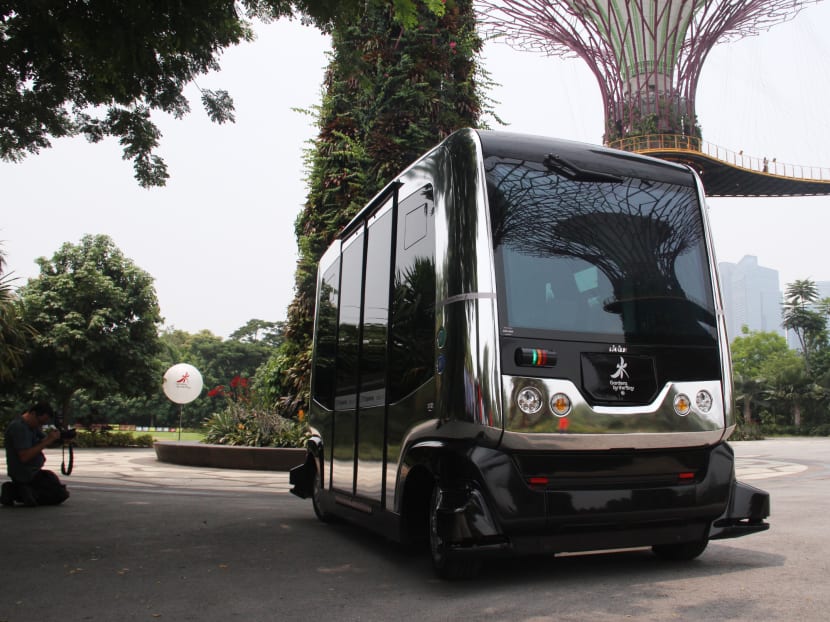Research centres at universities to boost transport expertise, innovation
SINGAPORE — Transport research centres will be set up at three local universities to beef up expertise and innovation in geotechnical engineering for MRT tunnels, self-driving vehicles, network optimisation and other areas.
SINGAPORE — Transport research centres will be set up at three local universities to beef up expertise and innovation in geotechnical engineering for MRT tunnels, self-driving vehicles, network optimisation and other areas.
The Nanyang Technological University (NTU), National University of Singapore (NUS) and Singapore Institute of Technology (SIT) inked agreements with the Land Transport Authority today (Nov 18) at the LTA Future Mobility Symposium.
More investment in research is needed to create a well-connected land transport system with less reliance on cars, which meets diverse needs of commuters, said LTA chief executive Chew Men Leong, whose agency will fund the centres’ projects.
The three centres will have different areas of focus, with some degree of overlap.
NUS’ centre will focus on mobility behaviour, green mobility, transport network optimisation and structural engineering. NTU’s centre will delve into self-driving vehicles, MRT tunnelling engineering, rail system inspection and condition monitoring, and cybersecurity. SIT’s centre will also focus on inspection and monitoring the condition of the rail system, as well as rail network simulation.
Professor Lee Der-Horng, director of the NUS-LTA Transport Research Centre, said it will be looking into a community-based mobility system to bridge the last-mile gap for commuters, among other projects. Such a system could be rolled out in residential or business enclaves, he said.
NTU’s chief of staff and vice-president of research Lam Khin Yong said that together with industry partners such as BMW, it has transformed the campus into a living laboratory in recent years to develop, test and commercialise electromobility, self-driving vehicles and secure wireless communication technologies.
SIT’s Professor Simon Yu said it will be working with LTA to develop simulation-based learning, so that both SIT students and working professionals can master important aspects such as signalling, route planning and system engineering through simulated MRT networks.
A 12-member LTA Research Advisory Panel has also been formed, to recommend research directions and objectives, and provide a sense of emerging transport mobility issues. Chaired by NUS’ deputy president (research and technology) Ho Teck Hua, it includes local and overseas experts.







